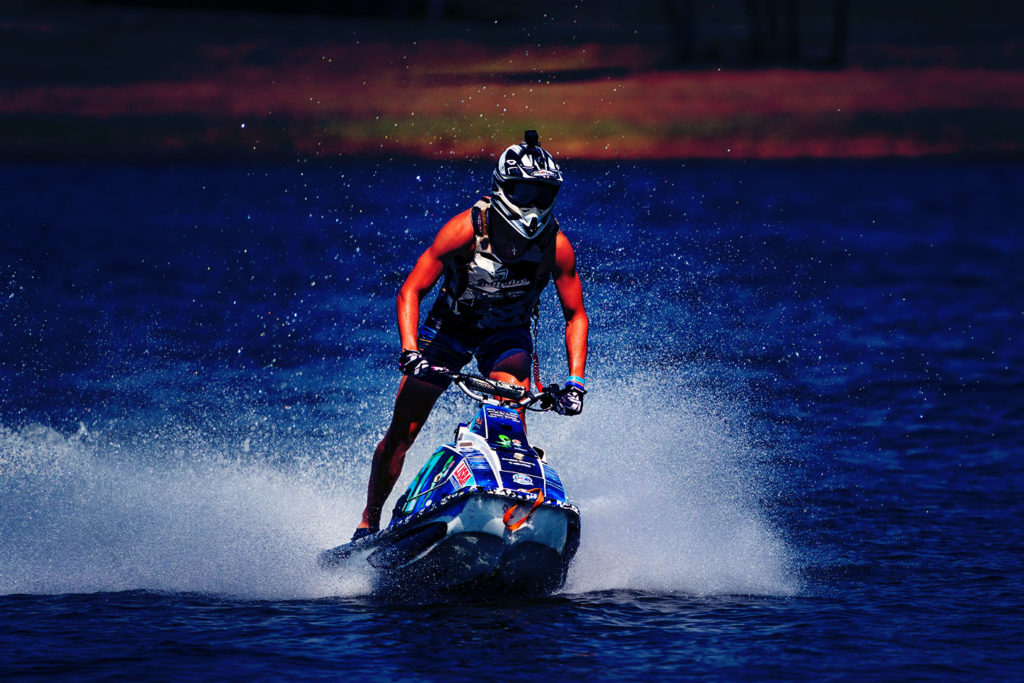Jet skiing can be tiring for several reasons, primarily due to the physical demands and the nature of the activity itself.
Here are several factors to consider…
- Constant Engagement – Riding a jet ski requires constant engagement of muscles to maintain balance, control the handlebars, and adjust body position. This continuous physical effort can lead to muscle fatigue, especially in the legs, core, and arms.
- Impact of Waves – Riding over waves or choppy water requires the rider to brace and absorb the impact with their body, which can be physically taxing over time. The bouncing and jolting motions can strain muscles and increase the effort needed to maintain stability.
- Gripping and Steering – Maneuvering a jet ski involves gripping the handlebars firmly to maintain control and steering through turns and straightaways. This constant gripping can lead to hand and forearm fatigue, particularly during longer rides or more intense sessions.
- Exposure to Elements – Jet skiing exposes riders to wind, sun, and sometimes cold water conditions, depending on the location and time of year. Dealing with these elements can add to physical fatigue, especially if the rider is not adequately prepared with protective gear.
- Mental Concentration – Jet skiing requires mental concentration to navigate the water, avoid obstacles, and anticipate changes in water conditions. This mental focus can contribute to overall fatigue, as the rider must stay alert and responsive throughout the ride.
- Adrenaline and Energy Expenditure – The excitement and adrenaline rush from high-speed riding can also lead to increased energy expenditure and subsequent fatigue, similar to engaging in other adrenaline-pumping sports or activities.
Tips to Manage Fatigue
- Build Stamina – Gradually increase ride durations and intensity to build physical stamina and endurance over time.
- Proper Technique – Learn and use proper riding techniques to minimize unnecessary strain on muscles and joints.
- Hydration and Nutrition – Stay hydrated and fuel your body with adequate nutrition before and during rides to maintain energy levels and prevent dehydration.
- Take Breaks – Periodically rest and stretch muscles during longer rides to prevent overexertion and reduce the risk of fatigue-related injuries.
By understanding the physical demands of jet skiing and implementing strategies to manage fatigue, riders can enhance their enjoyment and safety while on the water.



